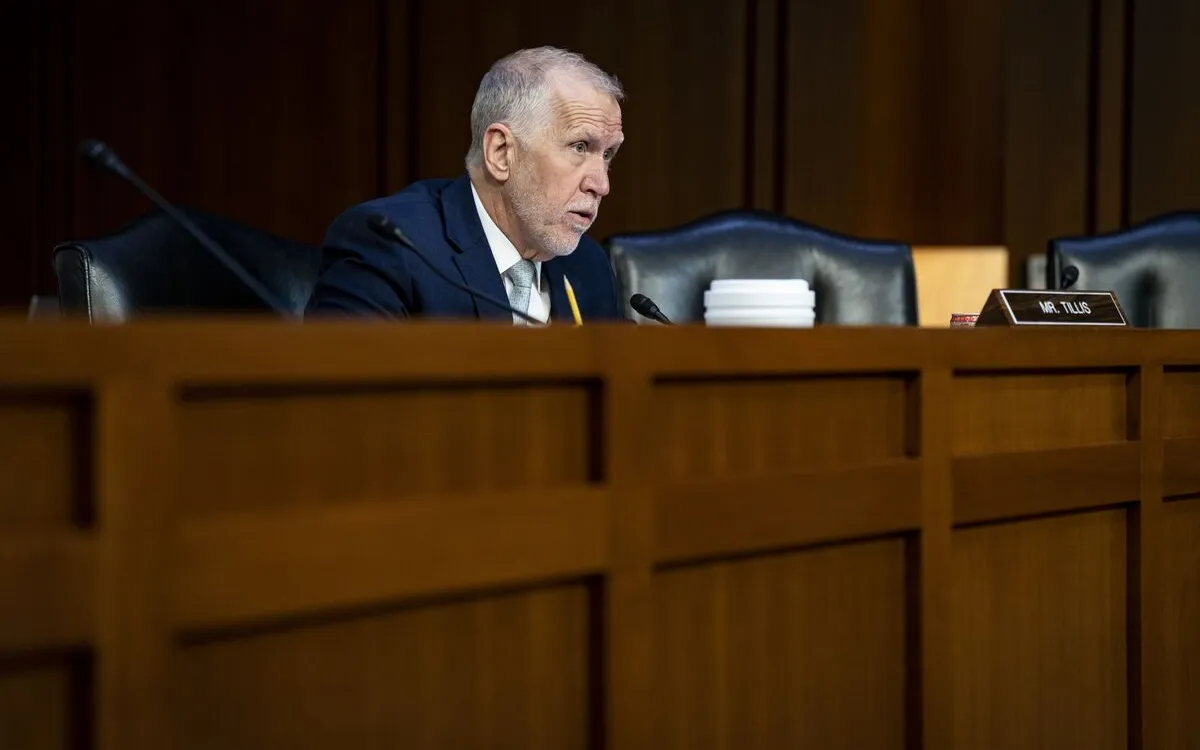
Republican Senator Thom Tillis has indicated that the implementation of the controversial Section 899 “revenge tax” included in President Donald Trump’s comprehensive tax and spending bill is likely to be postponed. This delay comes as the provision faces significant opposition from major financial institutions and businesses on Wall Street.
The revenge tax, as it is commonly referred to, is designed to impose additional taxes on companies operating in certain foreign countries. If Congress maintains its current trajectory and passes the legislation this summer, the tax is scheduled to go into effect on January 1. However, Senator Tillis, known for his moderate stance and active role in legislative negotiations, expressed concerns about the timing and feasibility of this provision.
Wall Street and various business entities have voiced their objections to the Section 899 tax, arguing that it could lead to unintended consequences for U.S. companies with international operations. As a result, Senator Tillis has suggested that more time is required to thoroughly evaluate the implications of this tax on the economy and to address the concerns raised by stakeholders.
As discussions continue, it remains to be seen how Congress will respond to the pushback against the revenge tax. Senator Tillis’ insights may indicate a willingness to revisit the provision and consider adjustments before finalizing the legislation. The outcome of these negotiations could significantly impact businesses and their operations abroad, making it a key issue to monitor in the coming months.